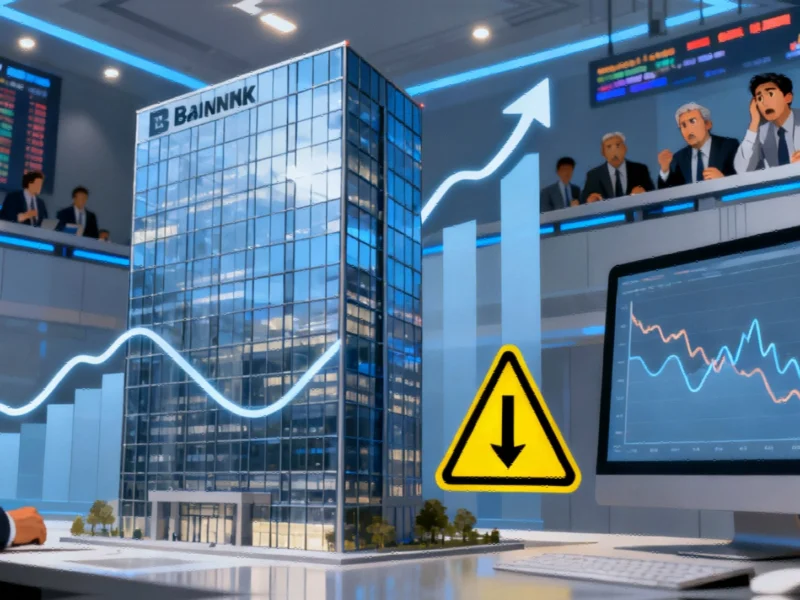Financial Contagion Spreads Beyond US Borders
Global markets experienced significant turbulence this week as concerns about the stability of US regional banks sparked a widespread sell-off. The anxiety manifested in major European indices including Germany’s DAX and France’s CAC 40 posting substantial declines, while Asian markets followed suit in subsequent trading sessions. The market nervousness represents what analysts are calling a “crisis of confidence” in certain segments of the financial sector.
Investment director Russ Mould of AJ Bell captured the prevailing sentiment: “Pockets of the US banking sector including regional banks have given the market cause for concern. Investors have started to question why there have been a plethora of issues in a short space of time and whether this points to poor risk management and loose lending standards.”
Specific Triggers Amplify Banking Worries
The immediate catalysts emerged when Zions Bank announced it would write off a $50 million loss on two loans, while Western Alliance disclosed it had initiated litigation alleging fraud. These developments followed earlier failures of prominent US firms including car loan company Tricolor and car parts manufacturer First Brands, raising fundamental questions about lending practices and risk assessment.
According to recent market analysis, the situation has created a domino effect across financial markets. Mould noted that “investors have been spooked,” adding that while UK-listed banks show no evidence of similar issues, “investors often have a knee-jerk reaction when problems appear anywhere in the sector.”
Private Credit Market Under Scrutiny
The recent failures have cast a harsh spotlight on the private credit market, where companies arrange loans from non-bank lenders. Questions are mounting about deal quality and underwriting standards in this rapidly growing segment of the financial ecosystem. Simultaneously, warnings from prominent financial leaders including JP Morgan CEO Jamie Dimon about an AI investment bubble have compounded investor anxiety about broader market valuations.
These market trends reflect a broader reassessment of risk across multiple asset classes. The convergence of banking sector concerns with technology valuation questions has created a perfect storm of investor uncertainty.
Flight to Safety Accelerates
As equity markets retreated, traditional safe-haven assets experienced significant inflows. Gold prices surged to a record high of $4,380 per ounce as investors sought protection from market volatility. The VIX volatility index, often referred to as the “Fear Index,” reached its highest level since April, indicating heightened market stress and anticipation of continued turbulence.
The current environment has prompted investors to reconsider their exposure to various sectors while monitoring industry developments that might signal broader economic shifts. Technology companies in particular face increased scrutiny as the AI investment boom shows signs of potential excess.
Broader Implications for Global Economy
Financial analysts are watching carefully to determine whether these banking sector issues represent isolated incidents or symptoms of broader systemic challenges. The concentration of problems in regional banks and specific lending segments suggests potential vulnerabilities that had been overlooked during periods of economic expansion and low interest rates.
Meanwhile, related innovations in financial technology and risk management may receive increased attention as institutions seek to strengthen their operational frameworks. The current market stress test comes amid ongoing transitions in monetary policy and evolving regulatory landscapes.
The situation highlights how recent technology and financial sector developments can create unexpected interconnections that amplify market movements. As investors digest these developments, the coming weeks will be crucial in determining whether current concerns represent a temporary adjustment or the beginning of a more significant market repricing.
Market participants are advised to maintain diversified portfolios and avoid reactionary decisions based on short-term volatility, while carefully monitoring fundamental indicators of financial health across the banking sector and broader economy.
This article aggregates information from publicly available sources. All trademarks and copyrights belong to their respective owners.



